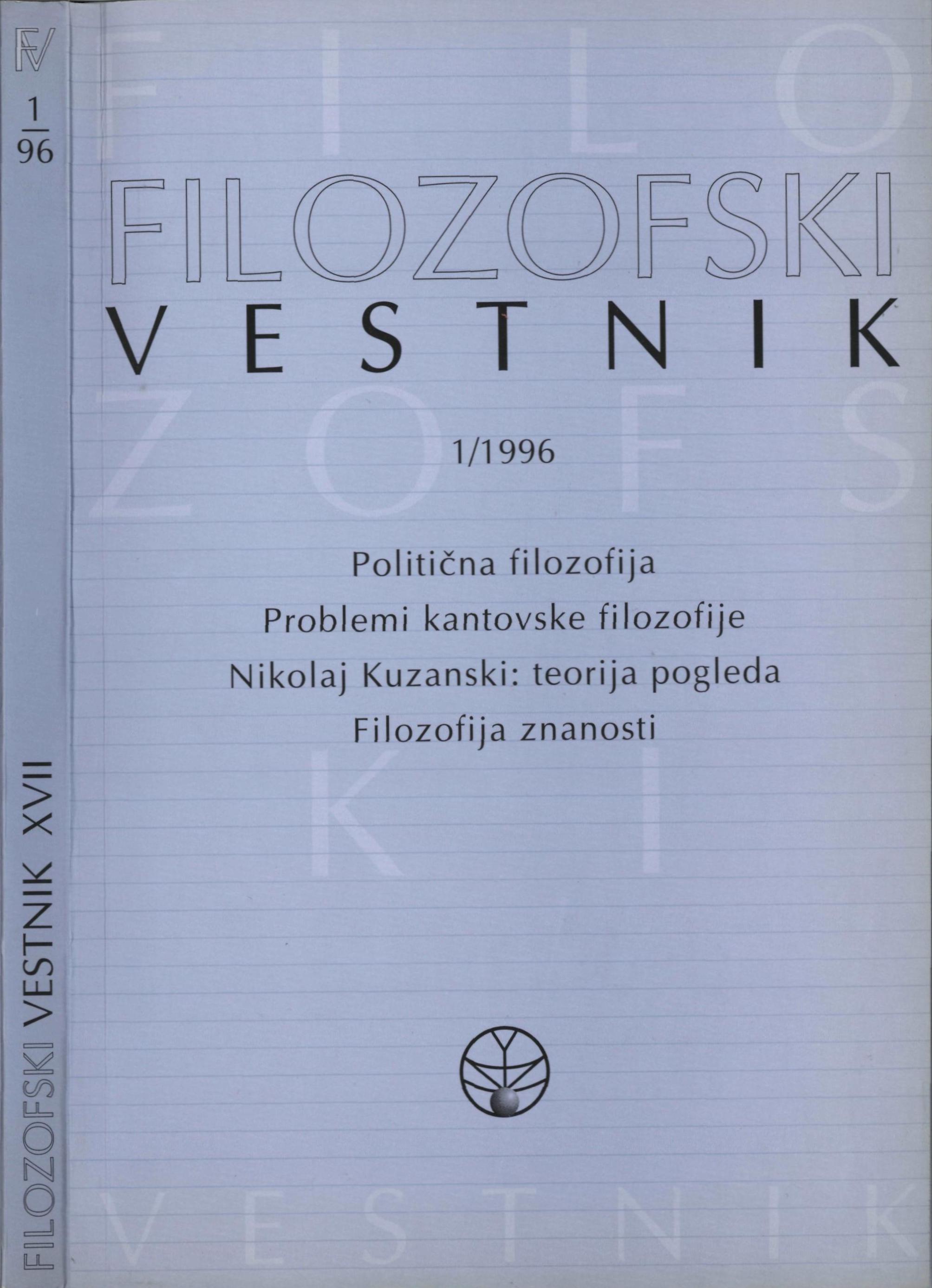Popperova filozofija znanosti II
Povzetek
Za Poppera predstavlja znanost proces reševanja problemov, ki temelji na izbiri hipotez. Pri tem ugotavlja podobnost med Darwinovo teorijo in procesom rasti znanstvenega znanja. V tej zvezi je pomembna Popperova teza, da je cilj znanosti resničen opis stvarnosti, ki vsebuje tri vrste bitnosti – ontologija treh svetov. Razlikovanje med bitnostmi pa je vprašljivo, ker temelji na subjektivni intenci interpreta. S tem pa postane vprašljivo samo opredeljevanje rasti znanstvenega znanja in njegov objektivni status, ker bi najboljša teorija morala biti korespondenca med stvarnostjo in celoto vsega človeškega znanja. Tako pa se zadovoljimo z določenim doseženim nivojem znanosti kot najboljšo podobo stvarnosti, kot Resnico.Prenosi
Podatki o prenosih še niso na voljo.
Prenosi
Objavljeno
2016-01-24
Kako citirati
Borstner, B. (2016). Popperova filozofija znanosti II. Filozofski Vestnik, 17(1). Pridobljeno od https://ojs.zrc-sazu.si/filozofski-vestnik/article/view/3943
Številka
Rubrike
Filozofija znanosti
Licenca
Avtorji jamčijo, da je delo njihova avtorska stvaritev, da v njem niso kršene avtorske pravice tretjih oseb ali kake druge pravice. V primeru zahtevkov tretjih oseb se avtorji zavezujejo, da bodo varovali interese založnika ter da bodo povrnili morebitno škodo.
Podrobneje v rubriki: Prispevki





